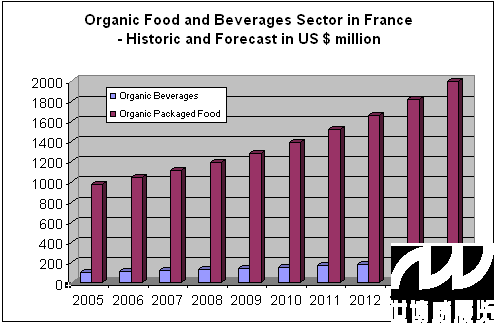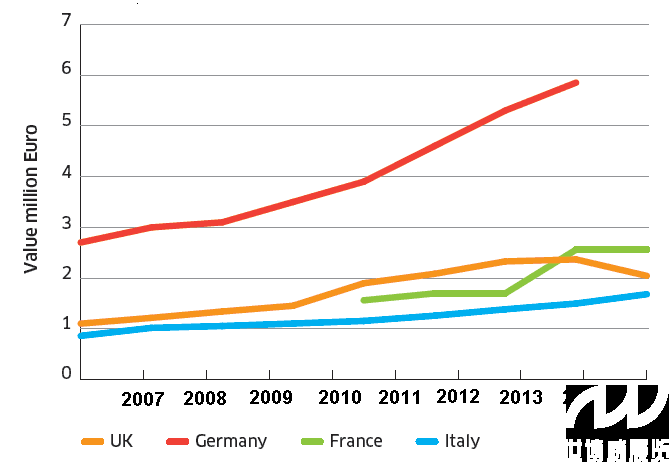News
Organic market in France grows by 10 %
With an estimated value of organic food sales of US$850 million, France ranked
fourth in 2000 in Europe, behind Germany, the United Kingdom and Italy. Although
France was a pioneer country in organic agriculture in the 1980s (see section 1
below), organic food sales grew at a comparatively low rate until the mid-1990s.
For this reason, a large share of domestic organic production was exported to
other European countries, in particular Germany. However, the organic market has
expanded rapidly since the late 1990s. Many industry analysts believe the current
high growth rate will continue in the next five years.
In the 1980s France was a pioneer country in organic agriculture, accounting for
45 percent of total EC organic land. However, organic farming did not spread as
fast as in other European countries in the 1990s. As a result, in 1999 France
ranked fifth after Italy, Germany, Austria and Spain, with only nine percent of
the EC organic acreage (Eurostat, 1999). Land farmed organically represented 371
000 ha in 2000, i.e. 1.3 percent of the total agricultural area, which is below
the EC average. Between 1999 and 2000, organic acreage has risen by 17 percent,
mainly driven by an increase in cereals and forage crops. According to the French
Observatory on Organic Farming (ONAB, 2001), there were 9 283 organic farms,
accounting for about 1.4 percent of all farms in 2000.
There is strong demand for organic food in France and the market is continually growing. In 2014, turnover grew by 10 % compared with 2013 and amounted to five billion euros (Germany 7.8 billion euros). Per capita expenditure in France was 75 euros and the equivalent figure in Germany was 95 euros. Germany’s western neighbour has been catching up rapidly and the big differences that we used to see are a thing of the past. Almost nine out of ten consumers now buy organics at least occasionally, with six out of ten buying an organic product once a month. In order to meet this demand more and more farmers are continuing to convert to organic production. The semi-state Agence Bio reports that the 1.1 million hectare mark was passed last year, although the growth in expansion was only 4 %.

